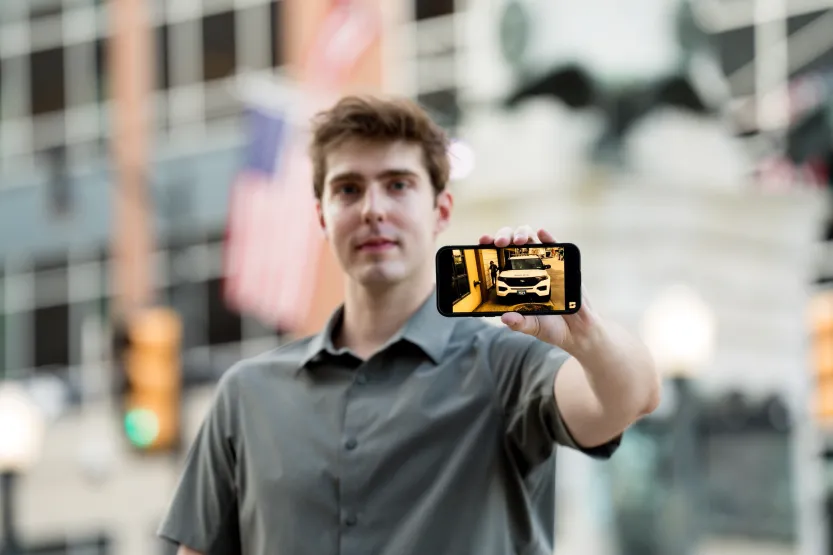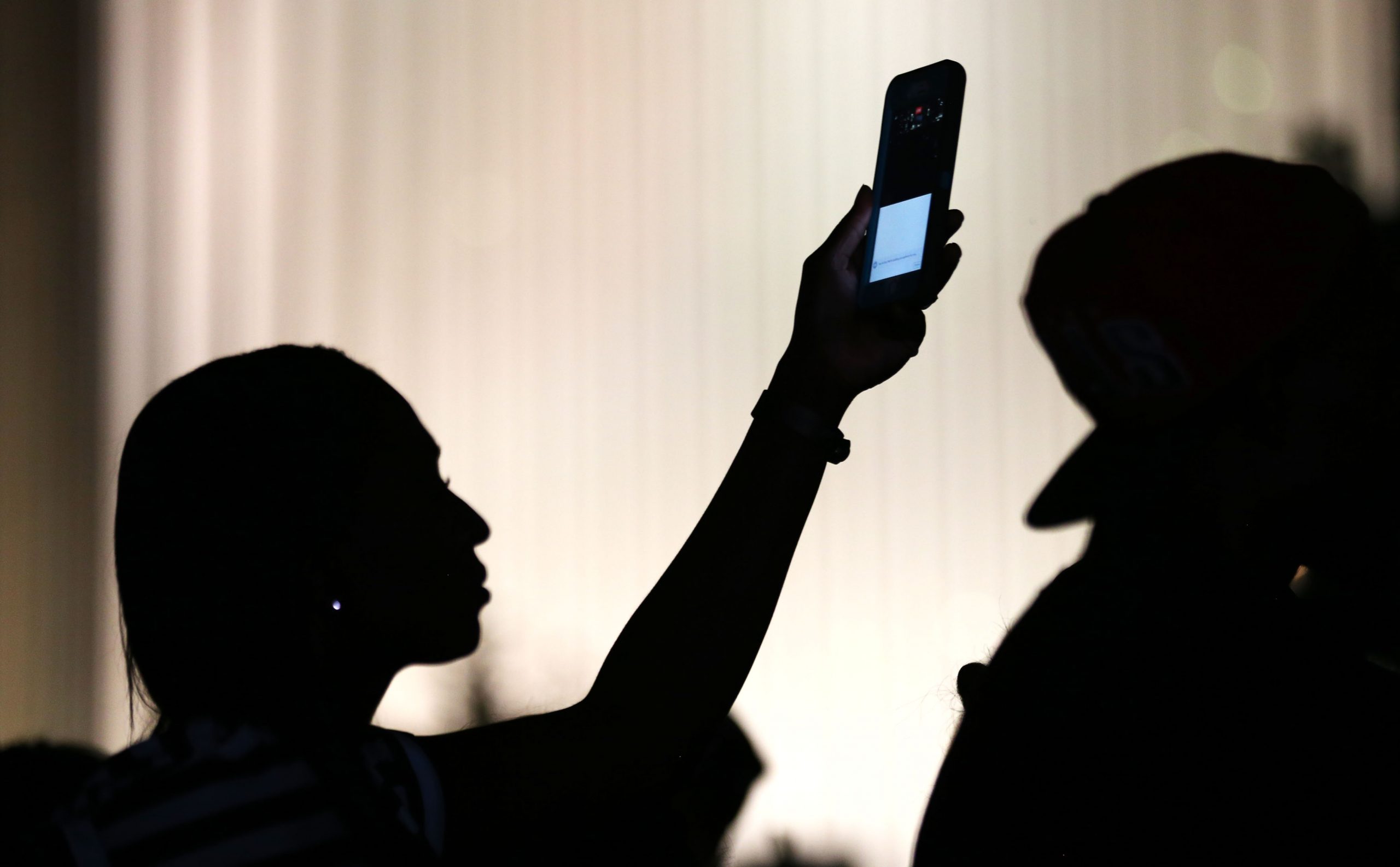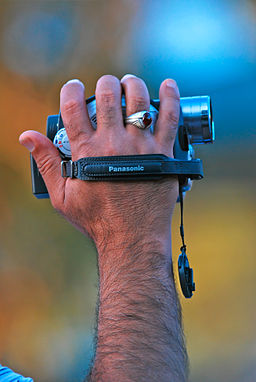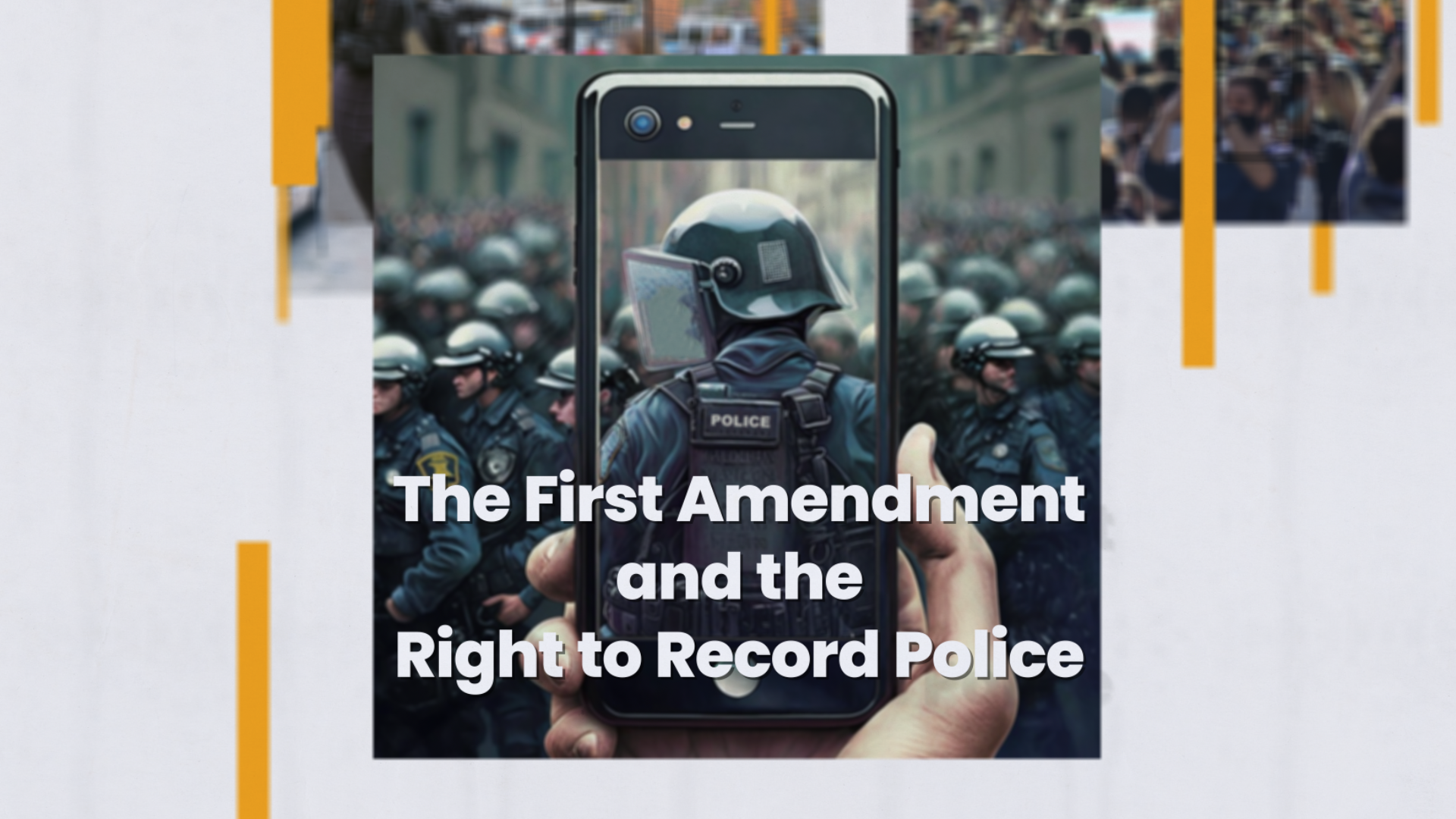An Allentown, Pennsylvania resident has sued the city and two Allentown Police Department officers for allegedly retaliating against him and violating his First Amendment right to record and criticize police.
The lawsuit was filed on July 23 in the U.S. District Court for the Eastern District of Pennsylvania by the Foundation for Individual Rights and Expression (FIRE) on behalf of resident Phil Rishel against the City of Allentown, retired Allentown Police Department (APD) officer Dean Flyte and Sgt. Christopher Stephenson. The lawsuit claims the APD retaliated against Rishel and violated his right to record police protected by the First Amendment. It also claims the city is liable for the officers’ actions, as it does not have a required First Amendment training program for its police officers.
“The City and APD have instead enabled a pattern of Allentown police officers retaliating against citizens who film and critique police conduct,” the lawsuit states.
According to the complaint, since 2015 the City of Allentown has paid “at least $2 million related to claims of police misconduct,” leading to increased scrutiny by residents. In response, the complaint claims, “officers have harassed and sought to prevent citizens from filming them.”
Rishel, “to bring public attention to the APD’s conduct and to protest its actions … films Allentown police officers in public spaces,” the lawsuit states. “This has tended to draw their ire and retribution.”
(See our teacher guide on the right to record police or the more concise citizen’s guide to recording the police. Watch our in-depth video: “Recording Police: Know Your Rights”)
On March 26, 2024, the complaint alleges, Rishel was filming on a public sidewalk outside of an APD precinct. Officer Flyte allegedly “got his patrol car from the adjacent parking garage, and drove it out of the garage and onto the public sidewalk, aiming it directly at Rishel.” Officer Flyte then “threatened to arrest and charge Rishel for filming and criticizing him.” Sgt. Stephenson joined, and the pair “purported to ban Rishel from the public sidewalk under threat of arrest.”
Despite this, Rishel returned the next day. According to the complaint, Sgt. Stephenson told Rishel he did not have a First Amendment right to record. Sgt. Stephenson then charged Rishel with disorderly conduct and loitering, of which Rishel was later found not guilty.
The communications manager for the City of Allentown did not respond to a request for comment.
Seventy-six percent of the U.S. population lives in states where federal appeals courts have recognized a First Amendment right to record police officers performing their official duties in public, but the Supreme Court has not ruled on the issue.
Pennsylvania residents have enjoyed the protection to record since 2017, when the U.S. Court of Appeals for the Third Circuit held in Fields v. Philadelphia that “the First Amendment protects the act of photographing, filming, or otherwise recording police officers conducting their official duties in public.”
First Amendment Watch spoke with FIRE staff attorney Zach Silver about the case. Silver outlined the First Amendment issues in the case, discussed why qualified immunity should not apply, and how the precedent set in Fields further defends their causes of action.
Editor’s note: This interview has been edited and condensed for length and clarity.
FAW: Over the past decade, how have recordings by bystanders contributed to our understanding of police conduct and misconduct? What effect has it had on political movements and discussion of individual rights and liberties?
Silver: I would actually say it goes even farther back than the last 10 years, if we think back to now over 30 years ago, to 1991 with the Rodney King beating. That’s really when, at least from my understanding, the first time that recording police misconduct on film really made national waves, really had an impact on a national stage, and really started the conversations around how police are treating certain communities. But even over the last 10 years, certainly as smartphones have become more ubiquitous, we’ve definitely seen an uptick in the number of incidents that have made the news and entered the public zeitgeist with regards to recording police misconduct. Incidents from Eric Garner to Tyre Nichols to George Floyd. [With George Floyd], certainly with the combination of COVID at the time, plenty of people were paying attention, and that really drove people to recognize that the police had the potential to engage in misconduct and abuse their power and position, and that recording police in general really can serve a valuable function in our society by reshaping our relationship with how we are policed. Thinking back to over the last decade, we’ve certainly seen even the police embracing it to an extent, through things like body-worn cameras, because ultimately, recording police helps not just the public who’s being policed, but it also does help police officers in general. If they’re accused of misconduct, then there’s this perpetual record of what actually happened. So it always kind of struck me as odd that the police don’t like being recorded, and that they’re not embracing it.
FAW: Can you outline the First Amendment issues in this case?
Silver: There’s four different First Amendment issues here. One is certainly the right to record police, and that stems from the First Amendment right to access information about the government and how they’re doing their job. And this has been a right as old as the First Amendment, if not older. And really it stems back to just as simple as somebody standing outside and writing down what they see the police doing. This is just a different degree of that. I would say it’s certainly not a difference of kind. It’s a memorialization of events that somebody is perceiving, and that’s something that’s always been allowed, right? And as long as you’re not getting in the way of the police doing their job. If you’re standing there and just recording and not actually interfering, just like Phil did, there’s no reason that the police have to stop you from doing that.
Issue two, I would say, is really the speech angle. Phil was charged with a crime in part, for using profanity to criticize police officers. There’s a few things there. You have the right to use profanity in public, so long as it doesn’t meet the legal definition of obscenity. You’re free to use that language certainly on a public sidewalk where First Amendment rights to speak are at their zenith. But there’s also the right to criticize government officials about how they perform their official duties, and that’s exactly what Phil was doing here that prompted this retaliation by the two officers who acted against him on March 26 and 27 of 2024 and then also, obviously, the fact that he’s filming in general is a form of protest, and that’s an exercise of his right to criticize government officials like police for how they’re performing their jobs.
The third issue, I would say, certainly is kind of an overarching theme of retaliation, and that the two Allentown officers who are defendants in this case retaliated against Phil for exercising his First Amendment rights, whether that be filming them, whether that be criticizing them and using profanity to do that. And if you could be retaliated against for exercising your First Amendment rights, then those rights don’t quite mean anything.
And [the fourth issue is] the liability of the City of Allentown, not just the two officers. Municipalities and governing bodies have a constitutional obligation to ensure that their police forces are adequately trained on constitutional rights, and where there’s a pattern of misconduct, or where there’s a situation that police are so obviously going to confront — like facing protesters on a public sidewalk, facing criticism, facing people who are going to record them — there doesn’t need to even be that pattern of violating those rights, because those things are so obvious. And the failure to train them on those rights are inevitably going to result in some of these rights being violated. And that’s ultimately what happened here, because the city didn’t provide any First Amendment training to its officers, let alone First Amendment training on the right to record and to criticize police.
FAW: Is the Allentown Police Department required to have training that informs officers of citizens’ First Amendment right to record police?
Silver: That’s ultimately the crux of our lawsuit. We’re claiming that their failure to do that was a constitutional violation. We’re saying that it’s so obvious that police officers are going to routinely face protesters, are going to routinely face people who are going to criticize them, will curse at them, and people who will record them, that by failing to train its officers, the city was deliberately indifferent to the constitutional rights of its citizens, including Phil, and that because of that, that ultimately was the moving force behind what the officers did to Phil and causing the deprivation of his constitutional rights.
There are two reasons the City is obligated to provide First Amendment training to its police. First, it is obvious that officers will come into contact with citizens exercising their rights to record, criticize, and curse at police and it is reasonably foreseeable that failing to adequately train officers about these rights will lead to constitutional violations. Second, this has played out in reality: There is a pattern of APD officers violating these rights and the City knows about that pattern. Accordingly, by failing to train its police, the City has shown it is deliberately indifferent to Phil’s and other citizens’ First Amendment rights; and that deliberate indifference was the moving force behind the officers’ actions against Phil and continues to threaten the First Amendment rights of everyone in Allentown.
FAW: In 2017, the U.S. Court of Appeals for the Third Circuit affirmed the First Amendment right to record police in Fields v. Philadelphia. How is your case similar to the precedent set in Fields? How is it different?
Silver: I think Fields is really so on point that it’s laughable that the officers would have acted in the way that they did, and especially where you have on video, not just an officer, but a senior officer and a police sergeant who is in a patrol platoon, who is responsible for not just routinely facing the public, but for leading other officers who face the public, the fact that he didn’t know that recording police is a First Amendment right, and says it’s not recognized under Pennsylvania law, where meanwhile, the case establishes it in the Third Circuit came out of Pennsylvania. This really goes to show, at least from our view, that the city was really derelict in its duty to train its officers. Phil was non-disruptively filming police officers. He was standing there, he had his phone up, he was just capturing what they were doing. He wasn’t interfering with them doing their work. He wasn’t blocking them from driving in and out of the parking garage. And Fields held pretty squarely that when somebody is on the public sidewalk recording police activity that you can see from that public sidewalk, and they’re not interfering with the police, that the police can’t interfere with that, and that’s exactly what happened here.
FAW: Rishel has a First Amendment right to record police in the Third Circuit. But qualified immunity most often protects officers from liability when they are sued for violating this right. With the Fields case having been decided in 2017, have the First Amendment protections been widely established enough in Pennsylvania and the Third Circuit to get around the qualified immunity for the officers and the police department?
Silver: Ultimately, the whole point of qualified immunity is that officers, or really government officials in general, shouldn’t face liability for their reasonable but mistaken actions. And the question of whether it’s something that’s reasonable is whether there’s something that’s happened before, that would put them on notice that what they did or are doing violates somebody’s constitutional rights. And one of the sources for that “fair notice” is case law that comes out of the various courts of appeals. So when you have a case that’s decided by the court of appeals that sits over the state that you’re in, and they come down with a pretty straightforward rule that you’re then violating, you’re charged with having notice of that rule, whether you have actual notice or not — whether you as an individual subjectively know about it — is not relevant. It’s whether that rule is there and it’s written. If you look at it from an objective standpoint, does that rule exist? Is the case that you’re dealing with sufficiently close enough factually that the officer would have fair notice that what they’re doing is unconstitutional? And we’re certainly of the view that there’s no question of that here, where you have such a straightforward holding in Fields that Sgt. Stephenson’s and Officer Flyte’s actions violated.
FAW: Can you explain the alleged violation of Rishel’s right to speak on the public sidewalk, a traditional public forum?
Silver: I would say that the fact that it’s on a public sidewalk, which as you mentioned, is a traditional public forum, really where First Amendment rights are at their zenith, where the government has the least authority to regulate speech and other expressive activity. I certainly think that a case in a different type of forum we could certainly succeed on, depending on those facts, but those aren’t the facts that we have here. Just the fact that it is a public sidewalk makes our case that much more, at least in my opinion, open and shut. If you’re dealing with Phil standing on somebody else’s private property that he doesn’t have permission to be on, at that point there’s the potential trespassing issues, but that’s not something we’re dealing with here. He’s standing on a public sidewalk outside of a police station. You can’t get more of a traditional public forum than there other than maybe being in a public park next to a police station. So I think the nature of the forum where Phil was certainly helps us, especially when you think about the fact that one of our claims is also that he was retaliated against for his speech, not just for his recording. And again when you’re in a traditional public forum, your speech can’t face regulation based on the content or the viewpoint. And here we believe that Phil was treated the way he was, because of both the content of his speech, in terms of that he was talking about police misconduct and talking about the officers doing their jobs, and also the viewpoint, in that he was criticizing the officers and how they were doing their jobs. And those are both big no-nos.
FAW: Are there any time, place and manner restrictions at play here in his particular situation that would affect his rights?
Silver: Not that we’re aware of, and it certainly doesn’t seem like that. If you look at the video, and we allege this in our complaint, there’s a point where Officer Flyte comes up to Phil and just stares at a sign that says, “No trespassing,” and Phil says, “Yeah, nice sign, too bad it doesn’t apply on the public sidewalk.” And that’s correct. He’s on the public sidewalk. He’s not trespassing. Had he stepped into the garage, or had he even been actually blocking the entrance to the garage, that’s a different story. That has nothing to do with his speech, and that’s where you start getting the time, place and manner restrictions because the very first rule of that is that it has to be content-neutral. It has to be unrelated to the speech at issue. The second you start regulating somebody’s speech based on the content or the viewpoint, you’re no longer in that time, place and manner realm. But there was nothing indicating that Phil could not be where he was. There’s nothing indicating that Phil could not be doing what he was doing, and there were no countervailing concerns that the police had to grapple with that may reduce Phil’s right to record. So for example, in Fields, one of the examples that the court gives there is if somebody is recording a conversation that a police officer is having with a confidential informant, and [recording] puts an investigation at risk or puts a life at stake. And that’s not at all what was going on here. Phil wasn’t in the way of them making an arrest. He wasn’t blocking them from driving in and out. There was nothing content-neutral about this. And there was no time, place or manner restriction that he was violating. Sgt. Stephenson claimed that Phil was standing in a construction zone, and on a sidewalk that was closed due to ongoing construction. And if he was actually doing that and he was charged, arrested, or whatever it may be, because of that, well again, that has nothing to do with his speech. It has nothing to do with what he’s recording. It has everything to do with the fact that that area is closed for safety concerns. But that wasn’t what happened here. You can even hear in the video on March 27, Phil even asked one of the construction workers, “Is this sidewalk closed?” And he’s told “No.”
FAW: Does the verdict in Rishel’s criminal trial strengthen his retaliation claims?
Silver: One of the charges was dismissed, and that was disorderly conduct. So the magisterial court in Lehigh County dismissed that claim because it was premised on Phil’s language and his cursing and criticizing police officers. And the court recognized that there is long-standing precedent in both Pennsylvania state courts, as well as federal court, that merely using offensive language that doesn’t rise to obscenity or some other category of unprotected speech, can’t be the basis for a disorderly conduct charge, so the court dismissed that. But the court actually initially convicted Phil of loitering, and so Phil appealed that to the Court of Common Pleas, which is the next level up, and they overturned his conviction and found him not guilty of loitering. In terms of retaliation and how that factors in, it certainly does affect our case. There was a case out of the Supreme Court in 2019 called Nieves v. Bartlett that basically said when you have a First Amendment speech retaliation case, if there was probable cause to take the action that the officer took, then there’s no retaliation because that breaks the chain of causation. Because the officer may have acted with retaliatory animus, but he was still justified in doing what he was doing, because there was probable cause to believe that the plaintiff had committed some sort of criminal offense. So there was no probable cause here, because Phil wasn’t breaking any law, because everything was premised on the exercise of his First Amendment rights, and that can’t be the sole reason in making a probable cause determination. Again, had Phil been trespassing, had he refused to obey an order to leave a closed construction area that he was not authorized to be in, that’s a wholly different issue. There would be no constitutional impediment to charging or arresting Phil for his non-speech-related conduct like trespassing or refusing to obey a lawful order. But that’s not what happened here. And so the fact that the charges were dismissed, certainly lends support to our claims of First Amendment violation.
FAW: Would Phil Rishel be described as a “First Amendment auditor,” individuals who specifically film on public property and police stations to test the rights to film in a public space? What was his motivation for filming outside of the police department?
Silver: Essentially, as we outline in our complaint, the Allentown Police Department really does have a very long history of misconduct, especially as it relates to people criticizing them and trying to record them. And when Phil learned about this history it really inspired him to basically engage in that exact behavior that the cops seemed to not like, but which was protected. That was his way of protesting the Allentown Police by doing the exact same thing that they routinely unconstitutionally retaliated against people for doing, but also as a way of letting them know like “Hey, you’re being watched, you’re being scrutinized. You should be on your best behavior.” So I am loath to classify him as your typical First Amendment auditor, especially because of some of the negative connotations that First Amendment auditoring may have. But he does it out of protest and as a matter of function. He sees police and he wants them to know that they’re being scrutinized. I would classify Phil more as a protester than an auditor, but the way that he protests is certainly in line with what you would think of when you think of a First Amendment auditor.
More on First Amendment Watch:




